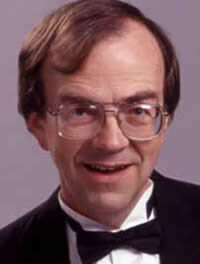Besides a plethora of outstanding golf courses, another attraction of Pinehurst and Southern Pines is the Classical Concert Series held in the intimate Sunrise Theater across from the picturesque train station. The series was founded and impressively built up by Martha and Bill Hall and has been taken over by the Moore County Arts Council under the able and enterprising leadership of Chris Dunn. Besides established big name groups such as the Beaux Arts Trio, the Borromeo String Quartet, and the St. Lawrence String Quartet, rising young winners of the Young Concert Artists International Auditions have always been featured. This concert featured one of the 2005 winners, South Korean-born pianist Wonny Song.
Song grew up in Montreal, Canada and received a full scholarship to Philadelphia’s Curtis Institute in 1994 followed by a Bachelor’s degree from Montréal University in 1998, and continued his studies at the University of Toronto with Anton Kuerti (who will appear later this season on Duke University’s Piano Recital Series). Song is racking up an impressive resume of concerto and solo performances as well as a series of competition prizes. Unlike some of today’s wunderkinds who seem to use out-sized body language to telegraph “meaning,” Song is reserved and restrained at the keyboard, letting the sound alone communicate. He is not ramrod straight, just relaxed and economical in his movements.
Song’s program was largely Romantic, sandwiched between a Bach transcription and a Gershwin favorite, all of which was ideal for Southern Pines’ very conservative music lovers. The first half of the program began quietly and slowly built up to a brilliant finish. Song brought out all the simple eloquence of Egdon Petri’s transcription of “Schafe können sicher weiden” from the “Hunt” Cantata, S.208, by Johann Sebastian Bach. Three lovely selections by Frédéric Chopin followed; these showed Song’s clarity of articulation, subtle and tasteful use of tempo rubato, sensitive execution of rhythm, and broad range of tonal color. His refined interpretation of the gently rocking Barcarolle in F-sharp, Op. 60, was exquisite. Chopin’s Nocturne in C-sharp minor was published in 1870, more than 20 years after the composer’s death. Song perfectly balanced its opening and concluding melancholy themes with a more playful if fleeting middle section. Song pulled out all the stops over the dramatic course of the Andante spianato et Grand Polonaise brillante, Op. 22. His powerful finish brought the audience to its feet.
One of Felix Mendelssohn’s most famous and popular pieces, the Andante and Rondo capriccioso, Op. 14, opened the after-intermission part of the program. Song brought out the singing line of the opening and excelled in conjuring up the composer’s fairy-like world over the course of the delicate and fleet rondo. Franz Liszt’s transcription (probably his second) of the lied “Widmung” by Robert Schumann followed. Song’s skilled treatment of harmony, melody, and rhythm was excellent. My favorite performance was Song’s scintillating performance of L’isle joyeuse, L.106, by Claude Debussy. His keyboard dexterity was dazzling and his use of tonal color was kaleidoscopic.
Song used a page turner only for his tour-de-force performance of what he told Mrs. Hall was George Gershwin’s original solo piano version of Rhapsody in Blue. From its hushed suggestion of a clarinet riff, interrupted ripe melodies, and jazzy interjections to its brash finale, Song’s whirlwind playing was breathtaking. He brought out all of its sassy and jazz-age panache. This brought the house to rousing and prolonged applause. After having finished Gershwin’s gauntlet it was more than understandable that Song would not perform an encore. How could you top the Gershwin?












